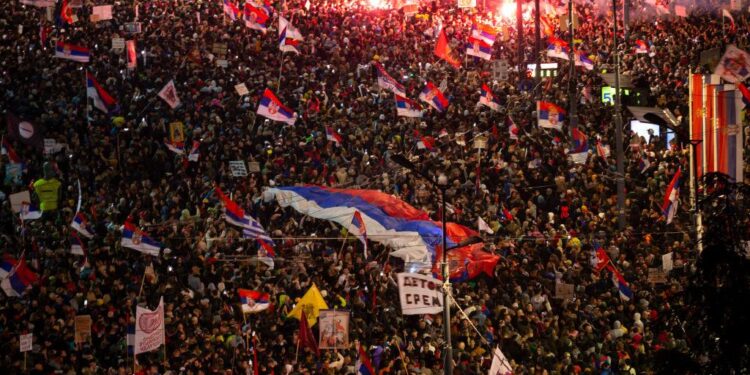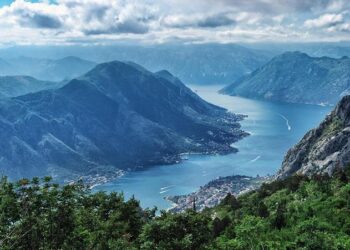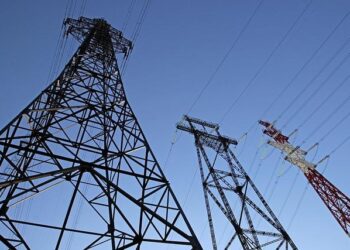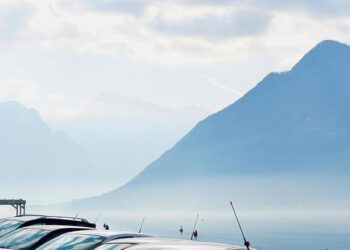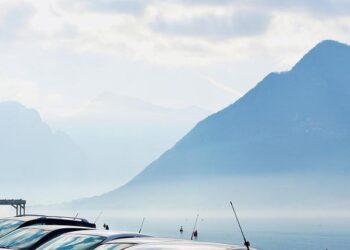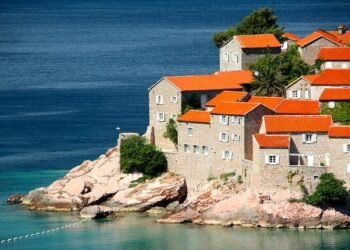The resurgence of pro-Serbian political forces in Montenegro is increasingly straining the country’s delicate relations with neighboring Croatia. As these nationalist elements gain traction, political tensions in the Western Balkans are mounting, with concerns rising over potential impacts on regional stability and cooperation. This development underscores the complexities of ethnic and historical grievances that continue to shape the political landscape of the Balkans.
Rise of Pro-Serbian Political Forces in Montenegro Challenges Regional Stability
The surge of pro-Serbian political parties in Montenegro has introduced a fresh wave of tension in the Balkans, particularly straining the already fragile relations with Croatia. These forces, capitalizing on nationalist sentiments, advocate for closer ties with Serbia, often at the expense of Montenegro’s traditional regional alliances. This ideological shift is visible in their rhetoric and policies, challenging Montenegro’s path toward European integration and exacerbating ethnic divides within its diverse society. Croatian officials have expressed concern over policies that appear to undermine regional security frameworks and collaborative initiatives, fearing a resurgence of divisive nationalism reminiscent of past conflicts.
Key issues fueling the discord include:
- Border disputes: Increased nationalist posturing has reignited debates over the demarcation of borders between Montenegro and Croatia.
- Minority rights: Pro-Serbian groups demand greater protections for the Serbian minority in Montenegro, raising alarms in Croatia regarding minority treatment across borders.
- Economic cooperation: Strained relations threaten cross-border trade and joint infrastructure projects vital for regional growth.
The following table summarizes recent diplomatic incidents linked to the growing influence of pro-Serbian political structures in Montenegro:
| Date | Incident | Impact |
|---|---|---|
| March 2024 | Parliament session promoting Serbian cultural claims | Diplomatic protest by Croatia |
| April 2024 | Border checkpoint disputes on Montenegrin-Croatian border | Trade delays and heightened security alert |
| May 2024 | Public marches celebrating Serbian heritage in Montenegro | Croatian warnings of increased ethnic tensions |
Impact on Croatia Montenegro Relations Deepens Diplomatic Strains
The recent political shift in Montenegro, marked by the ascendancy of pro-Serbian forces, has significantly intensified tensions with neighboring Croatia. Diplomatic channels between the two countries have seen a palpable cooling effect, with Croatian officials voicing concerns over Montenegro’s growing alignment with Serbian nationalist narratives. This realignment challenges longstanding efforts to foster regional cooperation within the Western Balkans and threatens to destabilize ongoing dialogue on contentious issues such as minority rights and border agreements.
Key points exacerbating the diplomatic rift include:
- Serbian Orthodox Church influence intensifying cultural and political currents in Montenegro, viewed warily by Croatian authorities.
- Disputes over historical memory and national identity fueling political rhetoric on both sides.
- Cross-border security cooperation facing setbacks due to mutual distrust and divergent geopolitical orientations.
| Issue | Croatia’s Position | Montenegro’s Pro-Serbian Forces |
|---|---|---|
| Religious Influence | Promotes Catholic heritage and minority rights | Supports Serbian Orthodox Church dominance |
| Historical Narratives | Emphasizes shared Western Balkan EU aspirations | Highlights Serbian national history and identity |
| Border Disputes | Advocates for clear demarcations and EU mediation | Challenges current border agreements citing ethnic concerns |
Strategies for Mitigating Tensions and Promoting Dialogue in the Western Balkans
Addressing growing political tensions requires a multifaceted approach centered on trust-building and sustained dialogue. Key initiatives include:
- Enhanced diplomatic engagement: Facilitating roundtable discussions between Montenegrin and Croatian officials to promote transparency and mutual understanding.
- Community-level reconciliation programs: Supporting grassroots efforts that encourage intercultural exchange and dismantle stereotypes fueled by political rhetoric.
- International mediation support: Leveraging EU and regional bodies to provide neutral platforms for conflict resolution and policy alignment.
Additionally, fostering a shared economic vision can serve as a pragmatic mechanism for reducing friction. Prioritizing infrastructure projects, cross-border trade agreements, and tourism initiatives may incentivize cooperation and counterbalance political polarization. The table below outlines potential sectors for collaboration:
| Sector | Opportunity | Potential Benefits |
|---|---|---|
| Energy | Joint renewable projects | Energy security, job creation |
| Infrastructure | Cross-border transport links | Improved connectivity, trade boost |
| Tourism | Regional cultural festivals | Cultural exchange, increased revenue |
In Summary
As pro-Serbian political forces continue to gain momentum in Montenegro, the country’s relations with Croatia face increasing challenges. The evolving political landscape highlights longstanding ethnic and regional tensions within the Balkans, underscoring the fragile nature of inter-state ties in this complex region. Observers will be watching closely to see how these developments influence Montenegro’s domestic policies and its diplomatic engagements in the months ahead.


